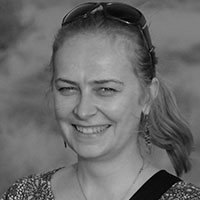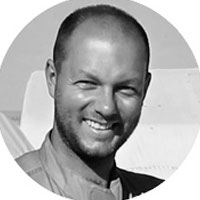
The University of Warsaw (UW) is the largest and according to the latest Shanghai Ranking the best higher education establishment in Poland - among the top 3% of the world’s best universities. The Centre of Migration Research (CMR) is a leading interdisciplinary inter-faculty research unit of the University of Warsaw, specializing in studies on migration processes in Poland and in Europe.
60 researchers are currently affiliated with the CMR; among them 10 Professors, 32 researchers holding a PhD degree and 18 persons with a MA degree. Within the group, researchers with sociological and economic backgrounds predominate but such fields as demography, political science, administrative law, social anthropology and cross-cultural psychology are also represented.
Academic and research activities were the main goal of the CMR since the origins. The Centre has been involved in a number of migration projects (varying in scale), funded by national and international sources. To date, the largest and most significant scientifically projects conducted by the CMR include: IDEA – Mediterranean and Eastern European Countries as new immigration destinations in the European Union (consortium of eleven institutions from nine countries, co-funded by 6 Framework Program), Mobility and Migrations at the Time of Transformation – Methodological Challenges (MWM, co-funded by EEA Financial Mechanism), Migration Policy and Labour Market Change (MPLM Project, co-funded by the European Social Fund). Throughout the years, around 50 research projects have been finalised, of a total budget of approximately 1.25 million euro (excluding individual and advisor grants).
 |
Karolina Sobczak-Szelc Assistant Professor at and the Centre of Migration Research, University of Warsaw and the Centre for Advanced Studies of Population and Religion (CASPAR), Cracow University of Economics. In 2012 at the Faculty of Geography and Regional Studies, University of Warsaw she defended her PhD thesis entitled ‘Migration of people of Southern Morocco versus changes of natural environment’. Earlier, in 2009 she completed MA studies in spatial economy, and in 2006 she graduated with a master’s degree in physical geography with honours, both at the University of Warsaw. She combines earth science, social geography, spatial development, and sociology to study forced migrations both in countries of origin and destination. Her knowledge of this subject is supported by numerous studies conducted in Poland and countries of MENA, particularly in Egypt, Morocco, Tunisia, and Turkey. Currently, she is Principal Investigator in the project ARICA — A multi-directional analysis of refugee/IDP camp areas based on HR/VHR satellite data (2020-2023) financed by the National Centre for Research and Development and a key staff member in the project FUME – Future Migration Scenarios for Europe (2020–2022), financed by the EU Horizon 2020 Programme. She was also Principal Investigator in the H2020 RESPOND Multilevel Governance of Mass Migration in EU and beyond. She is member of IMISCOE (International Migration, Integration and Social Cohesion in Europe), IASFM (International Association for the Study of Forced Migration), PERN (Population-Environment Research Network) and EuroMedMig (Euro-Mediterranean Research Network on Migration). Her main research interests include forced migration studies, integration of forced migrants, environmental migrations, and strategies of adaptation to environmental changes and limitations. |
 |
Magdalena Chułek PhD candidate at the Institute of Ethnology and Cultural Anthropology, Adam Mickiewicz University in Poznań, and a lecturer at the Institute of Ethnology and Cultural Anthropology, University of Gdańsk. She is an anthropologist with experience in designing, organising and carrying out qualitative research. She has implemented projects in Poland, Sudan and Great Britain. In 2012, she was awarded a research grant from the National Science Centre for her research project “Help in Africa’s Slums – Local and Western Strategies in Kibera and Korogocho,” which enabled her to carry out long-term field research in Kenya. Using the method of participant observation during her several-month stay among the studied community in so-called slums, she dealt with the sociocultural process of how these spaces are created. Currently, her scientific interests comprise forced migrations, environmental migrations and strategies of adapting to changes in the natural environment, especially in refugee camps. |


